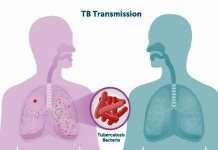(By Gracia Obi)
It will interest anyone to know that malaria deaths in Africa have gone down by one-third, since the year 2000, when African leaders met in Abuja and agreed to decisively reduce the incidence of malaria attacks and deaths across the continent.
This was announced by the executive director of the “Rollback Malaria” Programme of the World Health Organisation (WHO), Dr. FatoumataNafo-Traore, at the recent Special Summit of the African Union (AU) on HIV/AIDS, Tuberculosis and Malaria in Abuja.
The announcement came as the United Nations unfolded a new strategy to stop new HIV infections, saying about $2.4 billion would be required to attain coverage and treatment by 2015.
On malaria reduction, Nafo-Traore said more than a million lives have been saved from malaria since year 2000, most of them among African children under five years of age.
At the conference tagged“Abuja+12 Special Summit,”she revealed that 44 African nations had recorded over 50 percent reductions in malaria cases, over the past decade.
“Few other public health initiatives can boast such a significant achievement,” Nafo-Traore stated. “But we cannot rest on our laurels. African countries continue to face many challenges, both financial and technical. To make rapid programmes towards the 2015 malaria target, we need to hit our enemy hard in its strongholds in sub-Sahara African, while keeping up the fight elsewhere on the continent.”
She also affirmed that, with Africa in the driver’s seat and a massive increase in financial and technical support, progress over the past years has been outstanding.
According to her, the Rollback Malaria partners will keep doing all they can to support the African nations at every step of the way.
“The presentations you will hear today will provide guidance that we hope will strengthen your national malaria control efforts. You will also hear an important technical update on larval source management, an issue which has been of great interest to many among you,” she told stakeholders from around Africa and the world.
She went on: “I know that malaria control is one issue among many that are begging your attention. But addressing it now is a way to achieving important health and development targets. Malaria control in Africa has revealed itself to be a quick-win strategy for reaching multiple MDGs related to improving maternal and child health and driving poverty. Each dollar invested in malaria control yields forty dollars to the economy. No other social investment gives a better rate of return.”
Meanwhile, a new strategy aimed at achieving zero new infections of HIV, zero discrimination, and zero AIDS-related deaths was unfolded in a report by the Joint United Nations Programme on HIV/AIDS (UNAIDS).
As an important step towards achieving zero AIDS-related deaths, the organisation said countries should be encouraged to prioritise immediate efforts to ensure that all people eligible for HIV treatment have access to it.
The report stated that, to reach the targeted 80 percent coverage by 2015, using the new 2013 WHO treatment guidelines and criteria, the world would require additional $2.2-2.4 billion,asidefrom the treatment costs estimated in the 2010 guidelines.
“This expenditure will be money well-spent, as previous analyses have demonstrated that treatment is both cost-effective and potentially cost-saving over time,” the report stated.
It added that Treatment 2015 offers countries and partners both practical and innovative ways of increasing the number of people accessing treatment, which will allow people to live longer and healthier lives and prevent new infections.
Speaking on the benefits of rapidly scaling up antiretroviral therapy, the organisation says scaling up antiretroviral therapy preserves and strengthens the health and wellbeing of the adolescents and working age adults.










